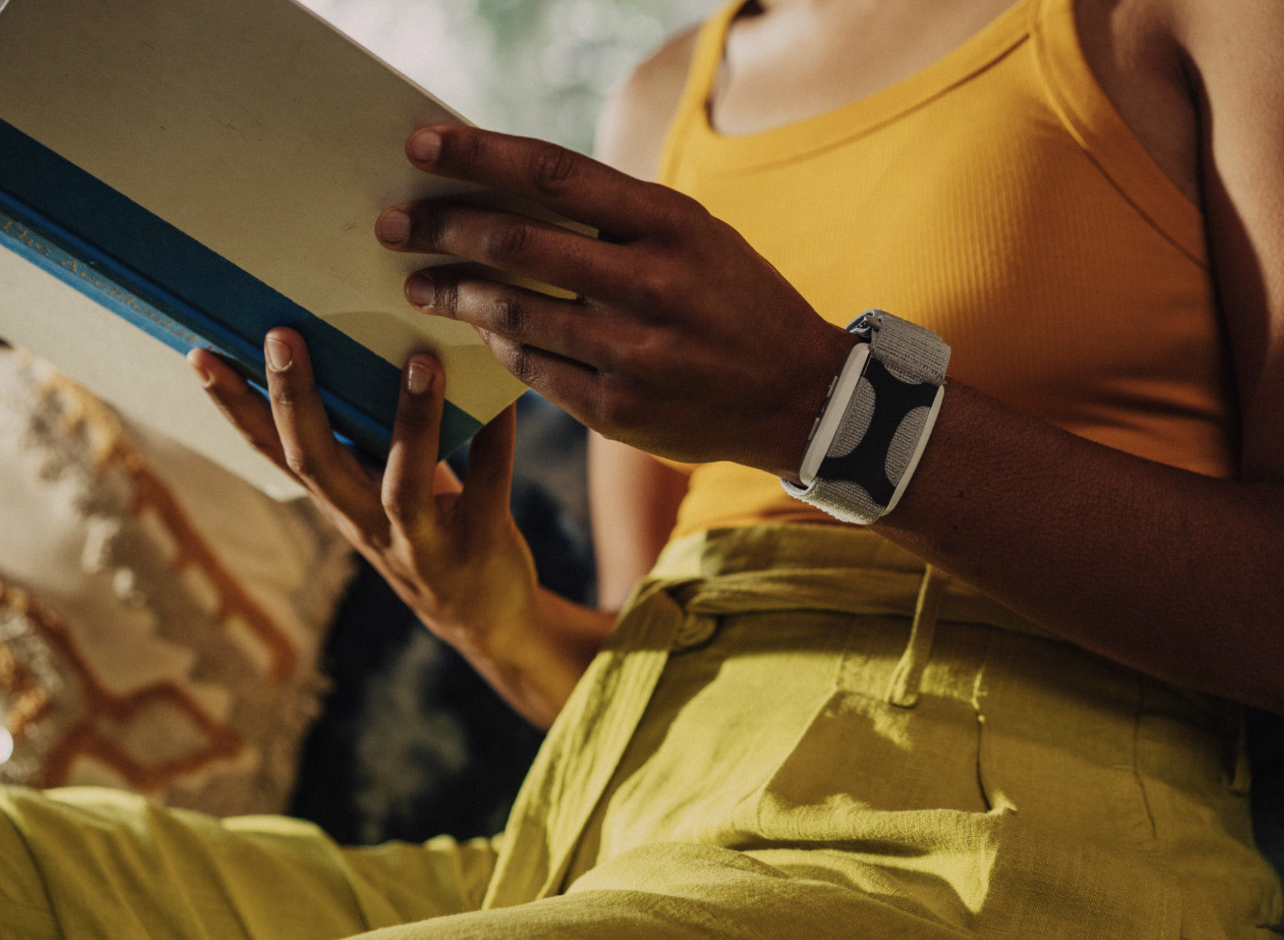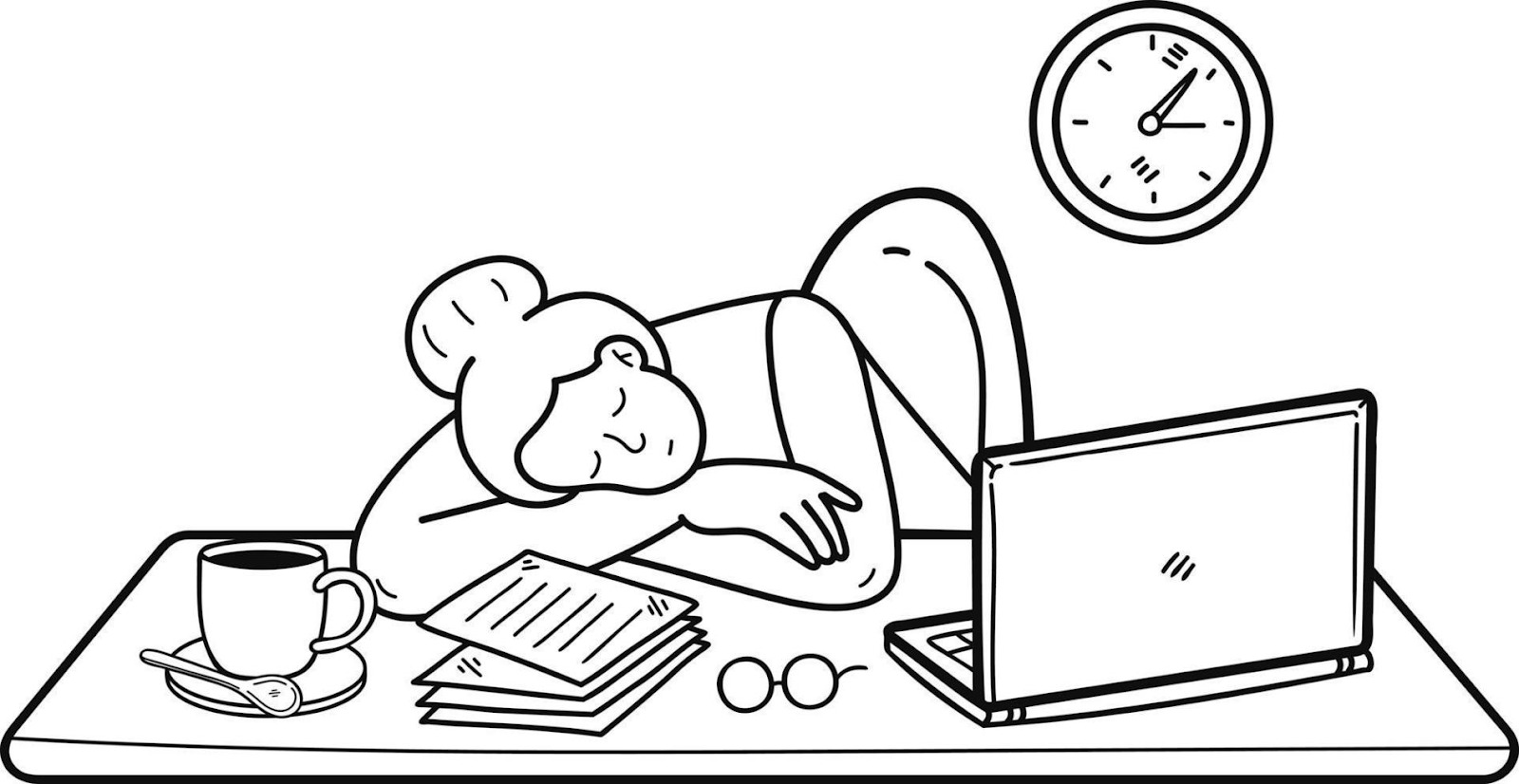There is a paradoxical relationship to naps. We want them, then we regret them. They refresh us and they make us groggy. Too short a nap leaves us wanting more; too long and we can’t sleep at night. This window of time — where a little shut-eye is beneficial — is where using the Apollo wearable on its Power Nap Vibe can help.
My own experience mirrors this napping paradox. My earliest memories of naps were while watching Saturday afternoon Auburn football games with my dad. We’d both fall asleep and wake up eager to see the end of the game. (And maybe a bit grumpy if Auburn lost.) During high school and college, naps were a necessity due to my lifestyle choices at that time: often staying up too late studying or hanging out with friends. (At least, that is what my parents thought…) Then professional life entered, and naps were no longer an option during the day. Taking a nap at 5:30 pm was not good for my circadian rhythm. What else interrupted that circadian rhythm? Having kids. My two beautiful bundles of joy disrupted my sleep in perpetuity, for a variety of reasons.
Are Naps Healthy?
According to the Center for Disease Control, 1 in 3 adults report not getting enough sleep. And, the Sleep Foundation recommends an average of eight hours of sleep per night for adults. If you are not getting enough at night, a nap is a great solution.
A short nap in the early- or mid-afternoon can:
- boost your memory
- improve job performance and concentration
- elevate your mood
- increase alertness and energy levels
- ease your stress
There are a lot of health benefits packed into that short period of time.
When is a good time to nap? How long should a nap be?
With naps, it is definitely about timing and length. The myriad of articles and experts suggest anywhere from 15 to 90 minutes, with most recommendations hovering between 20 to 30 minutes. A 20-minute nap allows for the benefits of a bit of light sleep without entering the deeper sleep that has a tendency to interfere at night. Those longer naps might be more beneficial to emergency workers or those of us that work shifts.
Another important piece is to get the rest in before 3:00 pm. A good time might be right after lunch as that is a time many of us experience postprandial somnolence — or a tiredness often referred to as the post-lunch dip. A few factors outside of food are attributed to this dip in energy — sleep drive and circadian rhythm. Our sleep drive, which is a natural daily build-up of adenosine, is higher in the afternoon than in the morning. There is also a natural dip in our circadian pattern 7 to 9 hours after waking up, which makes early afternoon a great opportunity for a nap.
How the Apollo wearable can help
Napping, like sleep, can naturally take place. But taking a nap at an ideal time and keeping it within the optimal range can be tricky. This is where the Power Nap Vibe on the Apollo wearable can help facilitate our body’s natural process.

Apollo wearable transforms how you feel through your sense of touch, giving you more energy, a brighter mood, deeper relaxation and better flow. These soothing vibrations, called Apollo Vibes™, are like music you can feel. Using the Apollo™ wearable during the day and night gives you the same physical and mental benefits of mindful practices (like breathwork or meditation) – from improved focus and concentration to balanced emotions to reduced feelings of stress and anxiety to more restful sleep.
Using low frequency sound waves, the device assists in calming the nervous system to set the stage for sleep. I prefer the 30-minute setting as, personally, more than 30 minutes negatively affects my ability to fall asleep at night. The soothing vibrations that help lull me to sleep gradually increase in intensity to slowly wake me up. The overall experience is so much better than the drastic beeping of my alarm clock that seems to stop my heart and instantly stress me out.
I still have that tendency to nap while watching a football game or after a late night out with friends, but the Apollo wearable keeps me from stretching that nap outside my optimal window of 20 – 30 minutes.
Curious to see how the Apollo Power Nap Vibe works? Use the code AGEIST at checkout for $40 off.



Wonderful Article
Thank you – I appreciate that.